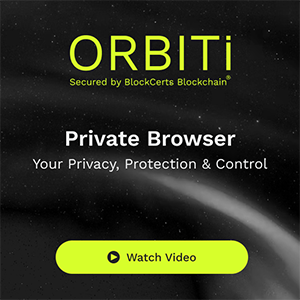Five Ways The Blockchain Promotes Social Good

From our morning commute to the food on our plates, our every action has an even greater chain reaction on the world around us. The world of environmentalism, philanthropy, and democracy are all based on this core principle and it turns out, the blockchain is too. Transcending its early days of personal gains and individual-centric value, the blockchain is here to transform social structures for the better. Bringing increased efficiency, reduced costs, and enhanced transparency to the mix, the blockchain has the potential to transform systems and leapfrog infrastructure, according to Stanford Business School. Read on to learn about the top five ways the world will be impacted by blockchain.
Stanford Business Review – Blockchain For Social Impact
In its roundup of 193 organizations, initiatives, and projects driven by both social impact and blockchain technology, Stanford Business School maps out the growing landscape of this niche industry. Although, it appears as though social oriented blockchain is not so niche after all. While in ‘the early days of blockchain for good’, the technology has been gaining traction in the advancement of social-good health, financial inclusion, climate, transportation, philanthropy, democracy, agriculture and more. Here, we break down some key findings from Stanford’s illuminating report, Blockchain For Social Impact.
1). Fair Pricing
In the agricultural space, the blockchain provides both small-scale and wide-scale benefits, extending from the individual farmer all the way to the consumer. In our current supply chain, agricultural systems are left in the hands of ‘trusted’ third parties, leading to costly operations and an even greater potential for fraud and corruption along the way. This forces our farmers into a life of poverty as they struggle to access timely and full payment to feed their own families.
It’s time we stop biting the hand that feeds us and the blockchain could be just the solution we need. According to Stanford, the blockchain replaces fallible third parties with more neutral and efficient systems. This provides the efficiency and the transparency needed to ensure that our farmers are paid fairly and immediately in order to lead higher quality lives.
Here at BlockCerts, we are passionate about making the benefits of the blockchain accessible to everyone. Join us on our journey to fairness and equality and learn about our F.E.E.D initiative here.
2). Eliminating Waste
Another major challenge in the agricultural landscape is food waste. As reported by The World Health Organization, one in 10 people fall ill each year due to contaminated food consumption. Additionally, one-third of the world’s food output gets lost or goes to waste each year. In both cases, the main culprit remains the same, a lack of food traceability.
As our systems are structured today, information about our food remains stuck in a slew of papers or in a proprietary database without regular and accurate auditing. Now, with the blockchain, we will be able to quickly pinpoint both waste and contamination at the source. We’ll know where to look when an outbreak occurs and we’ll know how to prevent or rectify dangers as well.
Leading in the food traceability movement, Walmart, Carrefour, Nestle, and other food providers have begun to integrate blockchain solutions to keep tabs on their produce and to satisfy the growing consumer desire to understand where our food comes from. Imagine going to the grocery store and scanning a simple bar code to view the entire journey of the food in your cart. That’s where we’re headed, and it’s about to make us a lot more responsible as consumers!
3). Electoral Integrity
Since the United States elections in 2016, our voices have been muddled by the potential for fraud and ‘undue influence’ in our government. With a lack of integrity coming up for review, a number of blockchain startups have emerged with the mission to bring power back to the people. Leveraging blockchain technology, we are building the path for a more secure voting infrastructure, digital identity system, and e-government platform based fully upon authenticity.
“Distributed ledger technology, the same technology underlying blockchain, makes votes instantly traceable and impossible to edit. The “audit trail” question is paramount for any voting system, and storing records across a distributed ledger helps to ensure the integrity of the vote as it is happening (and afterward), rather than relying on a centralized database which could be a target for attacks. Furthermore, voters can actually verify that their vote was cast and counted,” the report concludes.
4). Expanding Digital Identity Across Borders
Did you know, as many as 1.5 billion people worldwide are unable to prove their own identity? Most often in remote and underserved communities, individuals are lacking digital identity solutions and are therefore unable to access critical services. Limited from opening a bank account, obtaining social benefits, healthcare benefits, and even maternal care, it’s clear that unbanked populations are at a significant disadvantage.
Thankfully, blockchain based initiatives are making it easier than ever to engage in the global economy. With blockchain-based software-as-a-service solutions, the unbanked can now create an economic passport right from their cell phones and become active participants in the digital world. AID: Tech is one such solution, using blockchain-based digital identity to solve aid distribution gaps in disaster-stricken refugee populations. In the future, we’ll continue to see many more uses of this high impact application.
5). Patient-Centric Healthcare
In the healthcare sector, blockchain solutions are vast and in especially high demand. Today, patient records lack interoperability and are scattered across a number of different systems. But with the blockchain, not only will patient records become more secure, they will provide a full view of a patient’s medical history all in one place. This provides for a more patient-centric approach and leads to the most personalized treatment possible. Additionally, blockchain based exchanges allow patients to monetize their personal health data and contribute to medical research that will impact many.
The blockchain is a significant instrument for change. It challenges us to hold ourselves accountable, to connect more deeply with others, and to think smarter about our daily choices. As the next wave of digital disruption, we must remember to use this technology for good and build a better world with each block on the chain.






